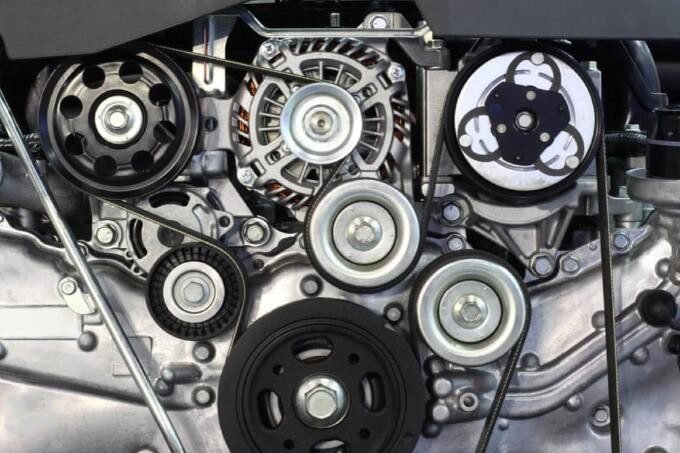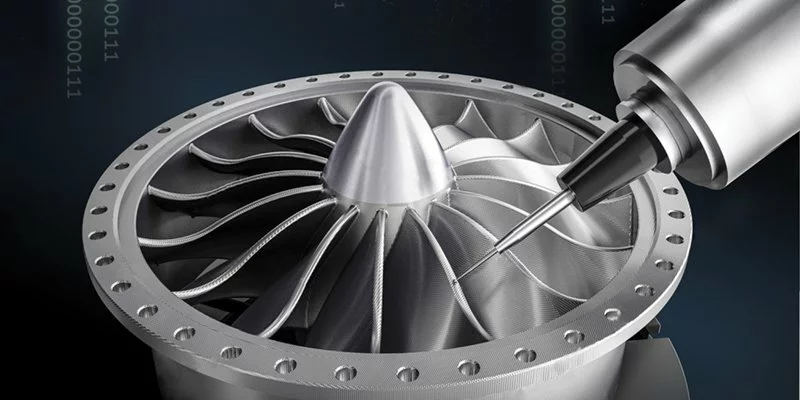CNC machining has emerged as a game-changer, offering automotive manufacturers an unmatched combination of speed, precision, and scalability. This article explores the profound impact CNC machining has on automotive parts manufacturing, shedding light on the significant advantages it offers, especially in the production of CNC Milled parts and CNC Turned parts. By understanding these benefits, automotive manufacturers can unlock new levels of productivity and quality in their operations.

Summary of CNC Machining in Automotive Manufacturing
As the demand for high-quality automotive parts continues to grow, CNC machining services are increasingly becoming the backbone of the automotive manufacturing sector. Whether for complex engine components, transmission parts, or intricate machine parts, CNC machining offers unparalleled precision. This technology allows manufacturers to produce high-quality, repeatable parts with extremely tight tolerances. With CNC Milled parts and CNC Turned parts forming the core of many automotive applications, this article highlights the main reasons why CNC machining is crucial for modern automotive manufacturing.
Why CNC Machining is Crucial for Automotive Parts Manufacturing

CNC machining plays a pivotal role in automotive manufacturing due to its ability to produce high-precision components consistently. By utilizing advanced milling and turning techniques, automotive manufacturers can streamline production and reduce costs, while ensuring that the quality of each part meets stringent industry standards. With the increasing demand for complex, lightweight, and durable parts, the automotive industry is relying on CNC machining to meet these challenges efficiently.
1. Precision and Accuracy: CNC Machining Ensures Perfect Fit and Function
CNC machining service allows for precise production of automotive parts, ensuring that components such as engine blocks, pistons, and gears are manufactured to exact specifications. By utilizing state-of-the-art CNC machines, manufacturers can achieve tolerances as tight as 0.001 inches, which is crucial for high-performance automotive applications. With CNC Milled parts and CNC Turned parts, every dimension is replicated accurately, ensuring that the final assembly fits together seamlessly and performs optimally.
2. Cost-Effectiveness: Maximizing Efficiency Without Compromising Quality
One of the primary advantages of CNC machining in automotive manufacturing is its cost-effectiveness. Although the initial setup costs for CNC machines can be high, the long-term savings far outweigh the investment. With CNC machining, manufacturers can produce high volumes of complex parts at reduced costs due to minimal human intervention and waste reduction. Furthermore, CNC machining enables manufacturers to create parts with less material waste, which contributes to a more sustainable production process—something increasingly important in the modern automotive industry.
3. Flexibility and Customization: Tailored Solutions for Unique Automotive Parts
In the automotive industry, each vehicle and application may require specific parts that must be tailored to fit unique designs. CNC machining services provide the flexibility needed for custom solutions, including CNC Milled parts and CNC Turned parts, which are vital for specialty automotive components. Whether it’s creating a one-off prototype or scaling production to thousands of parts, CNC machines can be easily programmed to accommodate different part designs and specifications.
4. Speed and Efficiency: Enhancing Productivity in Automotive Manufacturing
CNC machining drastically reduces the time required to manufacture parts compared to traditional methods. This efficiency translates to faster lead times and quicker production cycles. For automotive manufacturers, this means being able to meet high demand with quicker turnaround times without sacrificing quality. The ability to quickly switch between different parts and designs makes CNC machining a highly efficient solution in the fast-paced automotive industry, helping manufacturers stay competitive.
5. Complex Geometries and Designs: CNC Machining Unlocks New Possibilities

Automotive manufacturers are increasingly turning to CNC machining to produce intricate and complex geometries that are difficult, if not impossible, to achieve with traditional manufacturing methods. CNC Milled parts, in particular, can be produced with highly detailed features such as undercuts, pockets, and curves, which are common in automotive applications. CNC Turned parts, on the other hand, are perfect for components that require rotational symmetry, like axles, wheels, and shafts.
6. Consistency and Repeatability: High-Quality Parts Every Time
The consistency and repeatability of CNC machining are crucial to automotive manufacturing. With the ability to program CNC machines to produce the same part thousands of times, automotive manufacturers can ensure that each part is identical, meeting strict quality standards. This level of consistency is especially important for safety-critical components, such as brake calipers, suspension parts, and steering components, where even the smallest deviation in part dimensions can have serious consequences.
7. Enhanced Automation and Integration with Smart Factories
The automotive industry is increasingly embracing smart factories and Industry 4.0 technologies, where CNC machines are integrated into automated production systems. This connectivity allows for real-time monitoring, predictive maintenance, and data-driven decisions that optimize production efficiency. With automation, CNC machines can work 24/7, significantly increasing throughput without the need for human labor. The automotive industry stands to benefit from these advancements, enabling faster and more efficient production processes.
Table 1: CNC Machining vs. Traditional Manufacturing Methods in Automotive Parts Production
| Feature | CNC Machining | Traditional Manufacturing Methods |
|---|---|---|
| Precision | High (up to 0.001 inches) | Lower (depends on manual skill) |
| Production Speed | Faster, less time per part | Slower, more manual intervention |
| Customization | Highly customizable designs | Limited customization options |
| Cost Efficiency | Reduced material waste, efficient | Higher material waste, labor costs |
| Consistency | Excellent repeatability | Variability between parts |
Table 2: Applications of CNC Machining in Automotive Manufacturing
| Application | CNC Milled Parts | CNC Turned Parts |
|---|---|---|
| Engine Components | Cylinder heads, intake manifolds | Crankshafts, camshafts |
| Transmission Parts | Gearboxes, shift levers | Axles, shafts |
| Suspension and Brake Parts | Brake calipers, suspension arms | Brake rotors, wheel hubs |
| Interior Components | Dashboard panels, knobs | Steering wheels, gear sticks |
FAQ: CNC Machining in Automotive Manufacturing

Q: How does CNC precision machining improve the automotive manufacturing process?
A: CNC machining enhances the automotive manufacturing process by providing high precision, reduced lead times, and cost-efficiency. It allows manufacturers to create complex parts with consistent quality, while also offering the flexibility for custom designs and prototypes.
Q: What types of automotive parts can be produced using CNC precision machining?
A: CNC machining can produce a wide range of automotive parts, including engine components, transmission parts, suspension systems, brake systems, and interior components. CNC Milled parts and CNC Turned parts are commonly used for these applications due to their ability to produce detailed and high-precision features.
Q: Is CNC machining more cost-effective than traditional manufacturing methods?
A: Yes, CNC machining is generally more cost-effective in the long run. Although the initial setup costs for CNC machines can be high, the technology offers faster production speeds, reduced waste, and lower labor costs, which makes it a more cost-effective solution over time.
Q: Can CNC precision machining be used for both high-volume production and low-volume prototyping?
A: Yes, CNC precision machining is highly flexible and can be used for both high-volume production runs and low-volume prototyping. This makes it ideal for automotive manufacturers who need to create both custom parts and large quantities of standardized components.
Conclusion: The Future of CNC precision Machining in Automotive Manufacturing
As the automotive industry continues to evolve, CNC precision machining will remain a cornerstone of automotive parts manufacturing. With its ability to produce highly precise, complex, and cost-effective parts, CNC machining is indispensable for meeting the growing demand for high-performance vehicles. At CNCRUSH, a China-based CNC machining service provider with over 12 years of experience, we specialize in delivering high-quality CNC Milled parts and CNC Turned parts to the automotive, machine building, and automation industries. Our state-of-the-art CNC machines, combined with a dedication to precision and customer satisfaction, make us your trusted partner for all your automotive manufacturing needs.
If you’re looking for reliable and affordable CNC precision machining services, visit CNCRUSH to discover how we can help take your automotive parts manufacturing to the next level.
